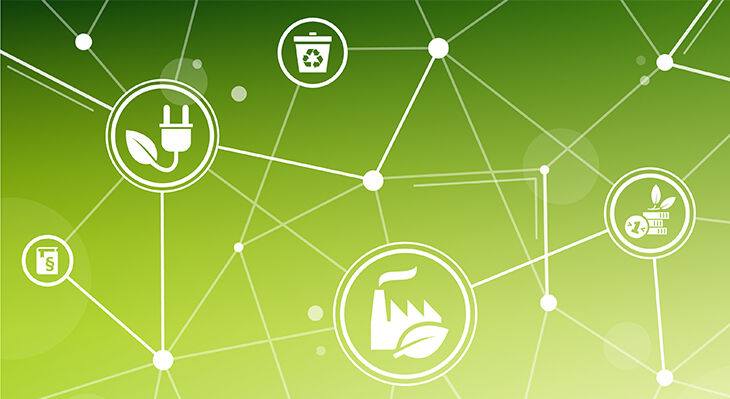Green Economy – the societal shift
Thinking Space 1
This Thinking Space adopts a cross-departmental design approach and will provide an insight into how vocational education and training and occupational competence act as an effective factor in bringing about a sustainable transformation of society. Current central discourses will also be used as a basis to reflect upon how employability skills are modernising within the context of changing requirements so that sustainability-oriented innovations can be shaped and implemented by qualified skilled workers.
Interactive scenarios addressing every stage of the value-added chain that leads from “grain to bread” will allow participants to examine sustainability-related challenges in various occupational profiles (miller, logistics specialist, baker etc.). “Learning nuggets” and basic information will be made available at individual exhibit points allocated to the different occupations. Participants will work under guidance in small groups to reflect upon ideas for the sustainable structuring of occupations and work in company practice. The standard occupational profile position of “Environmental protection and sustainability” will form a starting point for discussion and for illustrating how sustainability can be more effectively fostered as an integral component of training. VET pilot projects in the area of sustainable development and provision developed within the global learning space of international vocational education and training cooperation will deliver indicative findings, concepts and practical examples in this regard. The enormous potential that occupations have to shape sustainable development will become apparent, as will the responsibility vocational education and training will need to assume in order to encourage the necessary transformative competencies. The resilience of these considerations vis-à-vis external influencing factors will be put to the test by using game and event cards.
The results of the work will inform the second part of the Thinking Space, in which the main focus will be on current central discourses and approaches in respect of the promotion of competencies. Numerous concepts have been put forward to describe and develop transformative competencies, including the idea of “Future Literacy” proposed by the Federal Government’s Research Council on Global Environmental Changes, the OECDs “Learning Compass 2030” and the EUs “European Skills Agenda”. The associated challenges, opportunities and prospects for future-proof vocational education and training will be debated together with experts from the fields of academic research, policy and practice.
Programme overview
Part 1 (09:40 – 10:40)
Interactive group workshop: Sustainable training along the supply/value chain of a large bakery
- Facilitators: Hannelore Kress, Julia Olesen, Charlotte Poth, Moritz Ansmann (BIBB)
- Expert: Michael Rothe (ADB Nord gGmbH)
Part 2 (10:55 – 11:55)
Current leading discourses on the development of transformative competences against the background of "future literacy"
- Co-Moderation: Dr. Ralf Hermann (BIBB)
- Keynote: Dr. Friedrich Hübler (UNESCO-UNEVOC)
- Short impulse: Dr. Marion Schulte zu Berge (German Advisory Council on Global Change)
- Short impulse: Dr. Jasper van Loo (CEDEFOP)
- Short impulse: Prof. Dr. Tobias Schlömer (Helmut Schmidt University)
- Short impulse: Dr. Dietmar Kress (Greenpeace Deutschland e.V.)
